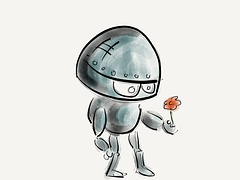What About Your Friends?: Empowering Social Supports in the Age of Technology
“What about your friends?” is a phrase made popular by the 90’s R&B group TLC. The one most of you are dancing or perhaps singing to as you read this. The question is a good one. Will you be there for them? Will they be there for you?
Friendship at all stages of life are complicated by social environment, status, culture, work, dating, and often geographic distance. I often hear people say that they would be closer to such and such friend if they shared the same place in the hierarchy of the social environment, if they still had the same social status, if they shared similar cultural backgrounds or interests, if they still worked together, or if they lived closer.
From a self-compassion perspective, you want to be connected to as many people as possible and you want those relationships to be mutually life giving. In recent scientific research, people were asked whether it is the size of the support group or whether it is the feeling that the support group is enough that made one’s support group most effective. Scientific data tells us is that it is feeling that our support group is enough.
Technology has changed how we go about relationships. In the past, we mostly had to stay present with the relationships available to us because no other relationships were available. Now, with social media you can be connected to some extent with people from your past or even people from your present you wished you had a deeper relationship with.
So technology gives more opportunity, but also allows for potentially more disappointment. In my own meetings with people, I often hear them complain that the virtual relationships they have with people seem not to be honored outside of the internet. In other words, they attempt to make plans or spend time with people they are connected to on social media, and those plans often fall through.
It is important to honor this loss and to find a way to bring kindness to your experience, but also requires you to take a different approach to developing relationships.
First, establish connection for the purpose of contributing well being. Disappointment cannot live where you do not afford landscape for it. Relationships are about well being for yourself and others, so lead with this core value to feel more at ease, more empowered, and more connected to your true intentions.
Second, decide who your close relationships are by the face-to-face time opportunities you have with those people, either in person, on the phone, or through media in which you speak face to face. Plan a time for when you can see them in person. Ironically, it is still considered face to face even if your face is not pressed against their face, which seems like a misnomer to me, but let’s go with it anyway.
Third, continue to follow what you are passionate about and you will meet likeminded people. Sometimes friendships diminish in their strength to make room for other friendships. You are valuable and other people probably need you in their life that you have yet to meet.
Fourth, understand that life operates in waves. There may be times where there are certain factors that separate you, but it is often the case that these things pass. Open up space to a renewed relationship down the line without putting the pressure on yourself to change external factors out of your control (ie: your friend was recently married and had a baby and you are still single).
Fifth, if someone, albeit naively, is doing you harm by not associating with you because of a situational difference (work, dating, culture, distance, hobby, social status, or social environment), notice this pain and wish them well but also extricate yourself from this situation. As my good friend, Dr. Theoharis always says, “You owe it to no one to be harmed.” Have faith that they will eventually realize their mistake and reconnect with you under more considerate and affirming circumstances.
If for any reason you find yourself worrying about these friends or your relationships during the day or before bed, simply notice the feeling, label it, and wish them and yourselves freedom from harm, and abundance of ease, self-acceptance, kindness, and well being.
Of course it goes without saying, nurture and appreciate the relationships you have. Find excuses to make a five minute call, or to grab lunch, or get dinner, or drinks, or simply take a walk.
Relationships are as important as your work goals, eating, the gym, and everything else with regards to your health, so get as many servings as you can without causing yourself any undue stress.
Wherever you find yourself, may your life be full of supporting, nourishing relationships and may they remind you of the gift of your own kindness and unique personality and the kindness and unique personalities of those with whom you associate.
365 Days of Kindness. Self Compassion. Day 16. In the Books.

